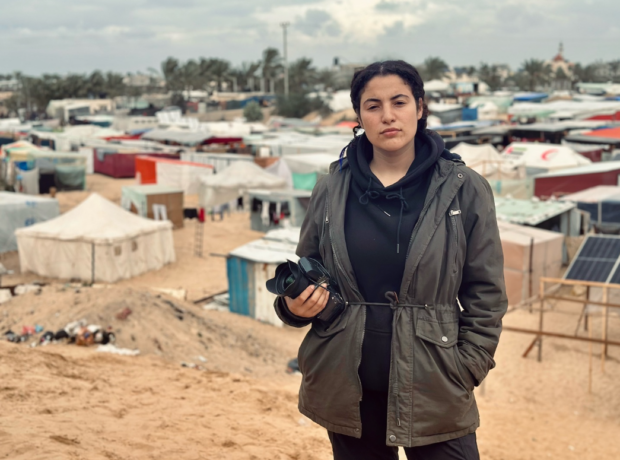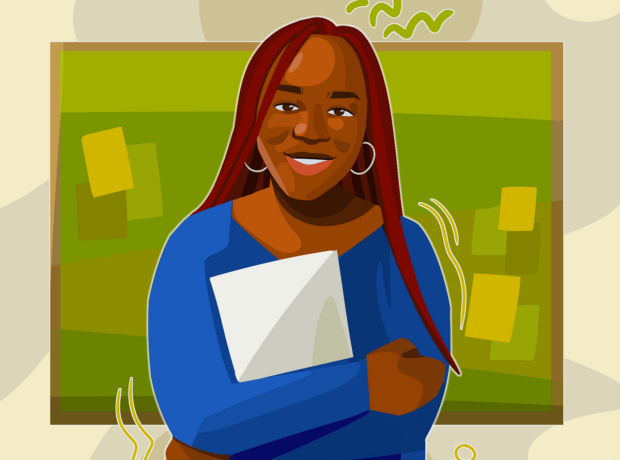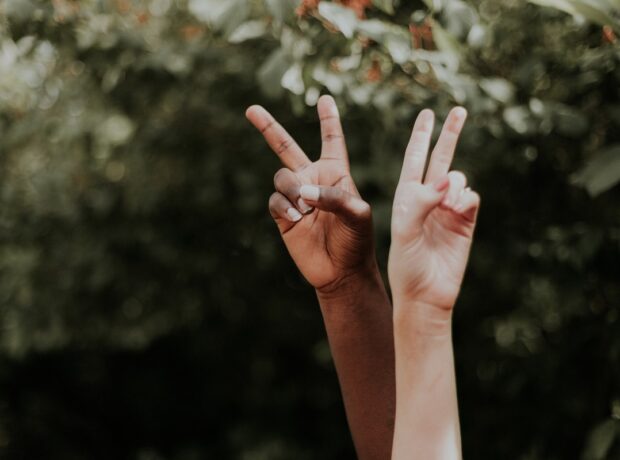How do you become a journalist? What qualifications do you need and how do you find stories and pitch them to editors? Freelance journalist Andrew Kersley, who has written about politics and social affairs for Private Eye, The Observer and The Mirror, shares his route into the career and offers advice for aspiring journalists.
“Everyone seems to have a story about knowing they wanted to be a journalist since they were 10, but I didn’t have that. I knew I wanted to do something impactful, to bring change, to help people, and to shine a light on wrongdoing. That could cover many professions. But what clicked for me was seeing the impact journalism can have practically. Seeing stories breaking that led to changes in the law. This was during a period of the first investigations into what happened at Grenfell Tower and the Windrush scandal. And even watching the film Spotlight. The entire concept of the endemic problems of child abuse in the Catholic Church came back to the influence of one investigation and one story.”
It’s the ability of journalism to unveil something that wasn’t known before, and in doing so, arm people to change the world and make their lives better.
Do you recommend journalism as a career?
“Journalism can be really hard at times. Some journalism jobs have terrible conditions, with big expectations in terms of output, and you’re certainly not going to get into journalism and make loads of money out of it. But what I can say is that if it’s something you’re passionate about it can be one of the best jobs in the world, being able to write and make a tangible difference to people’s lives. Even with what you feel might be smaller stories or not front-page news, you’re making a difference to people who haven’t been listened to – by a government, by a system, by a rogue landlord. And you can be the difference between them getting even a meagre sense of justice and getting nothing.”
Did you write for your student newspaper? And do you recommend student journalism?
“I studied History at Warwick and I didn’t dabble in journalism until my second year. I got involved in some of the student newspapers and magazines, and we did some interesting stories and good work. Student journalism is a really valuable thing to do, but I wish I’d known then that as a student you can still do ‘real journalism’. You don’t just have to write for student outlets.
“As a freelancer, I bang on editors’ doors all day long, trying to convince them that the story I have is worthwhile. You can do that as a student. There are so many stories happening on campuses across the UK. Who better to deliver those? If you’re sitting there in your third year and you haven’t become editor of the student newspaper, that’s not the end of the story for you.”
What should student journalists do after graduating to pursue a career in journalism?
“If you’re not one of the five people in the country who’ve managed to get onto a grad scheme, the best thing you can do is try and find publications to freelance for. Decide what kind of writing you want to do and build up a portfolio.
“Have confidence to find your own stories. What are you passionate about? What issues do you want to know more about? Get your ear to the ground and find out what’s going on. Ask people! Even if you feel like you have no right to ask the questions, you’d be amazed how often people are prepared to speak with you. Don’t hesitate to start pitching whatever publications you’re most passionate about. And start pitching as early as you can.”
What skills do you need to be a journalist?
“You need to know what constitutes a story. What’s interesting? What do people want to read about? You then need to know how to develop those ideas. Half a page of my notebook at any given time is dedicated to random ideas. Some may materialise into commissions, and some go nowhere. Reading about what’s happening will spark ideas. And I find stories lead to other stories. The more you write, the more you’re able to write. For example, a source might send you a second story after you’ve interviewed them or might refer you to someone else.”
What are the low points about being a journalist and how do you overcome them?
“Let’s not have illusions – journalism can be a very hard industry to work in. The pay is extremely low, the hours are long, and the demands put on journalists by big news companies to write seven articles a day can be soul-destroying. I fumbled around in the dark as a freelancer for my first year. I had a lot of failures, I wasn’t earning a full-time salary from freelancing for the first four or five months, and I survived off savings from bar work.
“It might seem that everyone else has way more success than you, but in reality, there’s always some failure involved. Even now, after a stupid amount of contact building, when I know most of the editors I pitch to, having worked for them multiple times, my pitching success rate is still about 33%. People don’t like to talk about that. There’s a mirage of everyone succeeding all the time, but there’s a lot of failure. If you’re able to deal with that and push through it, when you do succeed it’s great. You can tell stories and make a change and I can’t think of a profession like it.”
Which stories are you most proud of?
“There are stories I’ve written that have made a biggest impact and there are others that are the most interesting in terms of human rights and making a positive change. Amazon had a drone doorstep delivery programme. An editor asked me what happened to that? I messaged about 200 people to find out that they had fired more than 100 workers in winding down a huge part of the UK drone delivery business. Stories like that are impactful. I’ve written a lot about raw sewage dumping, sending FOI [Freedom Of Information] requests to the Environment Agency looking into how much is dumped into national parks, for example, or the amount paid in bonuses to CEOs and in dividends to shareholders. Stories like these make a change in the way people see issues like this, but are they making the companies change? I don’t know.
“I’ve been doing a lot of industrial coverage lately. With all the strikes, there has been a lot to write about, which is both a blessing and a curse. There is a depth of suffering in this country and the media are finally paying attention.”
Can you think of a time a story you’ve written has made a tangible positive difference?
“I was writing about how outsourced cleaning staff at NHS hospitals were being forced to follow tight schedules to clean operating rooms because private companies had slashed staff. This led to poor infection prevention during Covid. I don’t think the story has revolutionised anything. But there was one source I spoke to who was being fired for speaking out about the conditions she was working in, and when I reached out to the company, low and behold! Her redundancy hearing happening that week was immediately cancelled. It’s little stuff that makes a huge impact. It’s someone’s life. What matters is the concrete stuff.
“A week ago, I was writing about mould. Someone was being fleeced for thousands of pounds because the home they moved into was like a horror film, with mould everywhere. I called up the letting agents, mentioned it was going to be in the paper, mentioned the evidence we had to prove this was happening, and suddenly an agent – who had been refusing to speak with the tenant and refusing to respond to emails – decided they’d made a mistake and they were going to offer back all the money they were going to take from the first month’s rent and deposit. That’s genuine impact. I’m sure there are people in case worker roles who do that all the time, but journalism can do that too.”
What’s the difference between being a freelancer and being a staff journalist?
“As a freelancer I get way more leeway and control over what I do than I would in a staff job. That’s the best thing about freelancing. It means that every story you think is important you can fight for. Not every idea leads somewhere, and you still have editors who water stuff down or change stuff, but you feel less compromised than you do in staff jobs. In staff jobs, I’ve had investigations watered down or spiked by editors who disagreed with them.”
“I’ve worked at a place that had extremely high demands and extremely long working hours, which are depressingly ubiquitous in journalism. If you’re prepared to go through that, there are jobs in it. I don’t think you should have to settle for that.”
How do you decide who to freelance for? And are there newspapers or magazines you refuse to write for?
“I have a hard and fast rule which will hurt you career-wise in journalism. I don’t write or work for the Daily Mail or the Sun. I’m a Liverpool fan. And I tend not to write for that constellation of very right-wing magazines that have some views that I’m not comfortable sharing pages with. I would never judge anyone for writing where they can. Journalism is a really hard industry, and no one should ever feel shame about taking a job or a commission somewhere because it’s really competitive, the wages are extremely low. It’s a personal choice and it’s what you feel comfortable with.”
What career route do you advise for people wanting to become a journalist?
“There’s no set way into journalism. The training routes can seem convoluted, hard and scary at times.
Don’t feel that you’re not the right person to be a journalist because you’ve not done a master’s or training course. You have as much right as anyone else. That’s especially true if you’re a voice that isn’t being listened to enough.
“The courses can be valuable if you have the luxury to be able to do them. If you don’t, there are many other ways in. I know lots of people who’ve moved across from roles in research and activism into journalism. And there are many people who do journalism alongside other work. If you want practical tips, just ask any journalist you admire. You’ll be amazed how receptive they are to helping others get into this industry.”
Do you need an NCTJ or a master’s degree to become a journalist?
“Many master’s courses include the NCTJ [National Council for the Training of Journalists], but the costs tend to be higher. I did a master’s and I grew up in London, so that’s another way I was privileged. A lot of the journalism master’s courses, and a lot of the NCTJ courses are based in London. So, I was able to live at home and use part-time work and student loans to get me through my course. Funding these courses can be hard. They are valuable, they are important, and they can help, but they aren’t the be all and end all.
“There are a huge amount of people I know who’ve done the master’s and not gone into journalism. And a third of NCTJ graduates aren’t in journalism after 3 years.
“The NCTJ is very good for getting the basic skills you need in journalism. My course was helpful, but I learned more practically about the general skills I use day-to-day for writing investigations or features now, from flailing around for nine months than from my course. Those qualifications are often necessary to get office roles at outlets. If you want to get into publications, I reckon around half to two-thirds say you must be NCTJ accredited.”
How difficult is it to get into journalism and media if you don’t know people in the industry?
“I didn’t know anyone who worked in the media. I went in completely blind. That’s not to say I wasn’t in a privileged position. I had a comfortable childhood, went to a good university, and had far less to overcome than many other people will. But it’s true that journalism is nepotistic, and it’s governed by who you know. I know the children of senior editors who breeze their way into the industry. And I know people who are really talented writers and reporters who’ve had to claw for every inch of space they’ve got. Journalism has a problem with representation. It has a problem with class and that needs to change.”
A day in the life of a journalist
“If you’re working as staff for a news organisation, your day could consist of 12 hours of work. And it happens in big flurries. You have an article idea, or get a press release, or get an interview in, then you have to get it written up in 40 minutes to an hour. You might have a break and then you’re doing the same thing again. I wouldn’t recommend that lifestyle to anyone. But the last staff job I was in put far less expectation on quantity over quality.
“There, I worked 9am-6pm most days, but I might stay late if I was working on something big. I’d work on newsletter-related content and social media scheduling, SEO [search engine optimisation] for the first half hour of the day. After that, there’s a half-hour editorial meeting. Then you’re writing up stories. The evening editorial meeting might last 20-60 minutes, depending on the day. Then a couple more hours wrapping stuff up.
“You spend less time writing than you’d expect. You’d think journalists would spend seven hours writing, but that might be the shortest part of your day.
“As a freelance, I try to structure one week where I spend most days working on ideas, pitches and wrapping up anything from the month before. Then a week where I’m doing interviews, news gathering, and then the next week doing a lot of writing. Then rinse and repeat. Structure your working hours around your deadlines.”
Follow Andrew’s work via Twitter.
This is one in a series of human rights careers interviews, advising on the first steps to securing a job that makes a difference. Read more here:
- How to be a humanitarian aid worker
- How to be a human rights lawyer
- Building a human rights career: What are my options?
If you work in a human rights-related career and want to share your story, get in touch with us at hello@lacuna.org.uk



